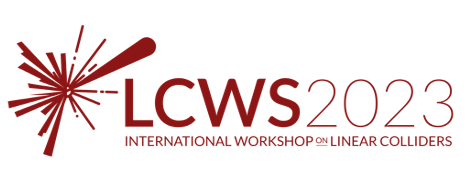Speaker
Description
Since the observation of a spin-0 particle at LHC by the ATLAS and CMS collaborations, efforts have been made to confirm that the newly discovered particle is indeed the Standard Model (SM) Higgs boson.
Precise measurements of the Higgs boson couplings are essential for the confirmation of the SM nature of the Higgs boson, the search for physics beyond the SM, and global fits of Effective Field Theory.
Linear ${\text{e}^+\text{e}^-}$ colliders provide a well-defined initial state and clean environment to enable precise measurements of the couplings.
However, the challenge of these colliders is to provide a large integrated luminosity required to achieve low statistical uncertainty on the measurements.
Therefore, it is advantageous to include several decay channels in one measurement to benefit from increased statistical power.
In this talk, machine learning algorithms are presented developed to improve the classification of events into Higgs decay channels.
Recent studies are presented with the main focus on the simultaneous measurement of the $\text{H} \rightarrow \text{b}\bar{\text{b}}$ and $\text{H} \rightarrow \text{c}\bar{\text{c}}$ decay channels.
It is concluded that machine learning can play a crucial role in overcoming the challenges for physics at future linear colliders and enabling to achive the ultimate precision in the measurements.



